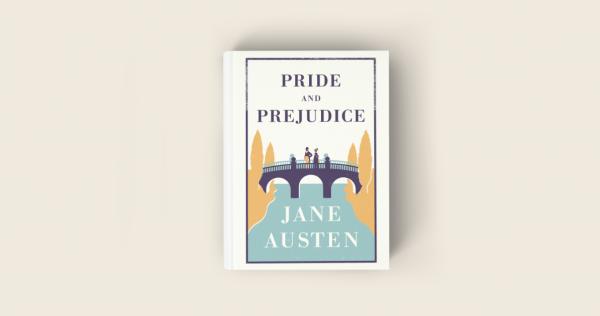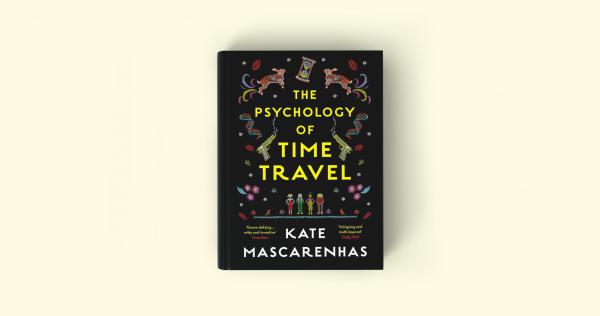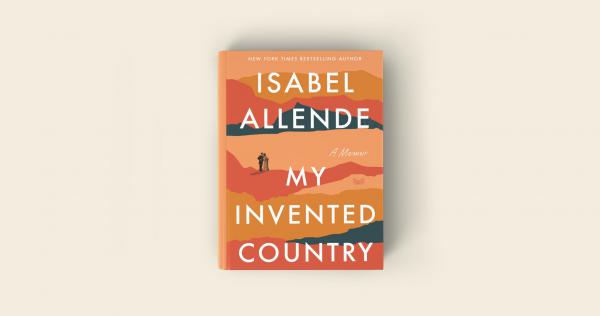Although in History women's names appear only “in a footnote”, we must not forget several women who raised their voices with and affirmed the position of Women in culture and in the world with their poems.
Today we highlight 10 female poets, whose literary work inspired us and made us believe that a more feminine world will always be a fairer, happier world.
1. Florbela Espanca (1894 – 1930)

Florbela Espanca was a Portuguese poet who started writing from a very young age. At the age of eight, she wrote her first poem, and by 25 she was publishing her first book — “Livro de Mágoas” (Book of Sorrows).
She lived a troubled life, and in a very intense way. She dared to write about the innermost of herself and, as a female voice, her verses were not well accepted in the discerning and conservative literary circles of the time, dominated by men. Her poems speak of love, suffering, longing, and loneliness.
She was one of the first women to study Law at the Faculty of Lisbon, and defied the conventions of the time, marrying several times and wearing pants whenever she wanted, an exclusive male clothing.
She passed away at the age of 36, but during her short life, she made a major contribution to the literary emancipation of women.
2. Sophia de Mello Breyner Andresen (1919 – 2004)

Sophia began writing children's stories, which she told her own children and became one of the best-known Portuguese poets.
She was born in Porto and grew up between the Northern city and the Lisbon, within a wealthy family far removed from the reality of the majority of Portuguese society at the time. After her marriage, she lived permanently in Lisbon.
However, privilege did not take precedence over her social consciousness. During the Portuguese dictatorial regime, she intervened socially and politically against the dictator, Salazar, which dominated Portugal. She strongly criticized the Regime, the Church and the Portuguese Colonization. After the military coup, in April 1974, she was a member of the Constituent Assembly and used her poetry as a voice for freedom.
Sophia was also a translator of great authors, such as Dante, Shakespeare, and Euripides.
She became the first Portuguese woman to receive the Camões Award, the highest Portuguese language award, in 1999. In the same year, she received the Pessoa Award, and in 2003 she was awarded the Reina Sofía Award.
Sophia was a woman who loved nature, the world, the words, and her power to transform it. Her poetic and children's work continues to mark generations of readers in Portugal and worldwide.
3. Natália Correia (1923 – 1993)

Natália Correia was born in the Azores but moved to Lisbon at the age of 11.
She was a poet, novelist, essayist, journalist, writer, scriptwriter, translator, and editor, and always a strong advocate of human rights, more specifically of women's rights.
From an early age, she was a charismatic woman with a very intense social life, and also a woman of passions, having married four times over her seventy years.
Like Sophia, she was a political activist and publicly disagreed with the Portuguese dictatorial regime, being sentenced to prison with a suspended sentence, in 1966, for the publication of the work “Antologia da Poesia Portuguesa Erótica e Satírica” (Anthology of Erotic and Satirical Portuguese Poetry), and accused of offending the “decency”, “public morality” and “good customs” of the time.
After the revolution, in 1974, she was a member of the Assembly of the Republic and participated in several television programs such as “Mátria”, which featured the matriarchal side of Portuguese society.
Throughout her life, Natália made the difference and rendered a great service to freedom, generating immense controversy through her irreverent and bold character.
4. Maria Teresa Horta (1937 – 82 years old)

She is a Portuguese writer, journalist, and poet, born in Lisbon in 1937. Poetry has always flown in her veins, coming from her mother's side from a family of the Portuguese high aristocracy, having the famous poet Marquesa de Alorna as her ancestor.
She started by writing poetry. However, later, she also devoted to fiction. In 1972, together with Maria Velho da Costa and Maria Isabel Barreno (known as As Três Marias — The Three Marias, since all three of them were named Maria) she published the book “Novas Cartas Portuguesas” (New Portuguese Letters).
This book challenged the moral authority of the regime in the 1970s and, therefore, became considered the revolutionary text of Portuguese feminism of the 20th century.
Maria Teresa was an activist for women's emancipation movements and gave up her cultural identity to do a work that would confront the male domain and address forbidden themes. Later, this earned her a trial, since the book was considered “pornographic and offensive for public morality”.
5. Matilde Campilho (1982 – 38 years old)

Matilde Campilho was born in Lisbon in 1982 and is one of the youngest Portuguese poets. She first attended Literature in Lisbon and then went to Florence to study Painting and Art History.
She is one of the most influential contemporary poets in the Portuguese language and has become well known for publishing her poems in videos on the Internet.
In 2010, at the age of 28, she moved to Brazil where she worked as a journalist and editor, and since then she has been living between Rio de Janeiro and Lisbon. She published her first poems, between 2010 and 2013, in the Brazilian newspapers A Folha de São Paulo and O Globo, as well as in some other online magazines.
“Jóquei” is her first book and was released by the publisher Tinta da China in 2014. Her poetry is a breath of fresh air in the national poetic industry, especially due to the sweet, light and rich character with which she expresses herself, mixing Brazilian and Portuguese expressions.
6. Rupi Kaur (1992 – 27 years old)

Rupi Kaur is not only an internet sensation she's also a human sensation and represents a new generation of poets, who use social networks to express themselves and meet their audience.
She was born in India, and, as a child, emigrated with her parents to Canada. Poetry was the way she found to deal with the rape she suffered at a young age and to claim back the body she felt had been stolen from her. It was on her Instagram and Tumblr pages that she published her first poems, and where she began her career as an Instapoet.
She is the author of the Internet breaker book “Milk and Honey”, published in 2014. This book was a bestseller in "the New York Times" for about 80 consecutive weeks. More recently, in 2017, she released “The Sun and her Flowers” and was even considered the most popular author in the United States.
Rupi writes about trauma, love, sex, race, and gender. Among the hatred of how the world treats young women, especially women of color, Rupi Kaur is a new celebration of contemporary femininity.
7. Amber Tamblyn (1983 – 36 years old)

Amber Tamblyn is a poet, actress, and co-founder of the Time's Up movement. She was born in California, in the United States, and published two poetry books: “Free Stallion” in 2005, and “Bang Ditto” in 2015. The first was the winner of the Borders Book Choice Award for Breakout Writing, which recognizes innovative works of young and emerging talent.
At the age of 16, Amber was the victim of sexual harassment and persecution by the well-known Hollywood actor James Woods.
Years later, Amber published her life story in a piece in The New York Times, where she spoke openly about the shame and remorse she felt and the way she feared her parents and family would react to the news.
Amber had the courage to expose her situation and helped many other women with her story and activism.
8. Wislawa Szymborska (1923 – 2012)

Wisława Szymborska was a Polish poet, essayist and translator. Author of more than 15 poetry books, she also dedicated herself to illustrating and editing.
She began writing from a very young age, influenced by the intellectual atmosphere in which she lived, and, at the age of five, she wrote her first poems. However, during her teenage years, Wislawa was forced to study clandestinely in an underground school in Kraków, due to the Nazi occupation of Poland.
In 1943, she became a railway worker and managed to avoid deportation to the forced labor camps in Germany. In this period, she wrote several short stories and poems.
After the end of World War II, in 1945, the writer enrolled at the Jagellonian University of Kraków, attending sociology, but was never able to finish it due to financial problems. That same year, Wisława Szymborska debuted in a newspaper in Kraków with her poem “Szukam słowa” (Searching for the word). After that, many other poems began to appear in different local newspapers and media.
In 1966, she was awarded the Nobel Prize in Literature, and in 2011, at the age of 88, she received the Order of the White Eagle by the Government of Poland.
Her work is translated into more than 40 different languages.
9. Adrienne Rich (1929 – 2012)

Adrienne Rich was an American poet, teacher, writer, and feminist.
She was one of the most influential writers of the feminist movement and became popular with the scathing and courageous social comments that she made about dominant American values, whether they were related to identity, race or sexuality.
Being the daughter of a Jewish father, a woman, and a lesbian, she lived a triple marginalized life. At a time when homosexuality was deeply condemned, Adrienne came out publicly and fought actively against the oppression of women, lesbians, and other social minorities.
She has published dozens of works and, according to her publisher she has sold 800 000 copies of poetry books since the 1960s.
Over the years, Adrienne has collected several awards, having turned down some of them as a form of protest.
10.Nikki Giovanni (1943 – 76 years old)

Nikki Giovanni is an African American poet, writer, and activist.
Since her youth, she has devoted herself diligently to the fight for the civil rights of the black community and the Black Power Movement. In her first three collections of poems — “Black Feeling, Black Talk” (1968), “Black judgment” (1968) and “Re: Creation” (1970) — her verses were deeply revolutionary and denounced the racial segregation that existed in the United States.
During the 1970s, and due to her experience as a single mother, Nikki dedicated to children's poetry and co-founded a publishing company, NikTom Ltd, which aimed to support other African American female writers.
In the 1980s, the poet refocused on political issues and wrote several poems in homage to African American heroes and heroines in the struggle for civil rights.
Over time, Nikki Giovanni made several appearances where she gave numerous speeches and publicly read her own poetry. She was nominated for a Grammy and was one of the 25 women honored by Oprah Winfrey in 2005 on “Oprah Winfrey's Legends Ball”.



